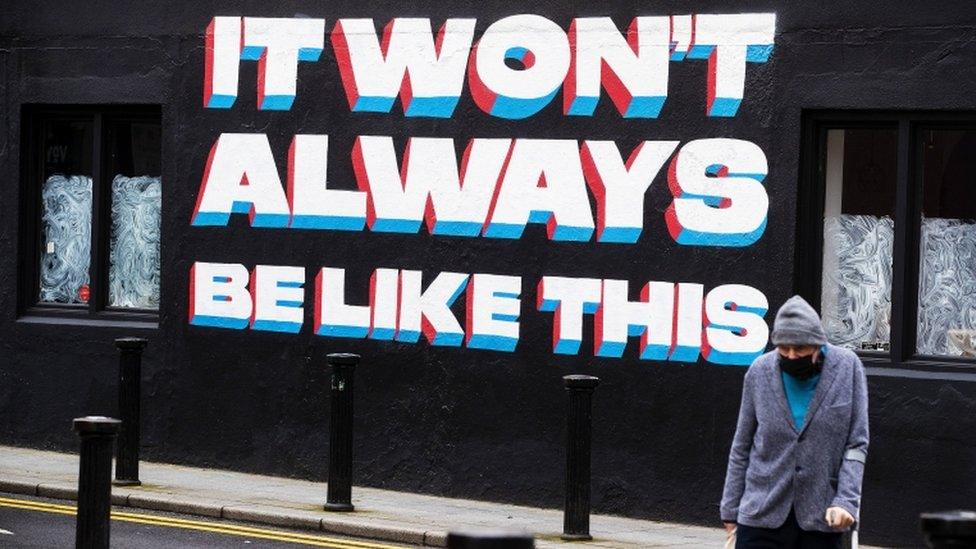Covid-19: 'Day of freedom' as restrictions eased further
- Published
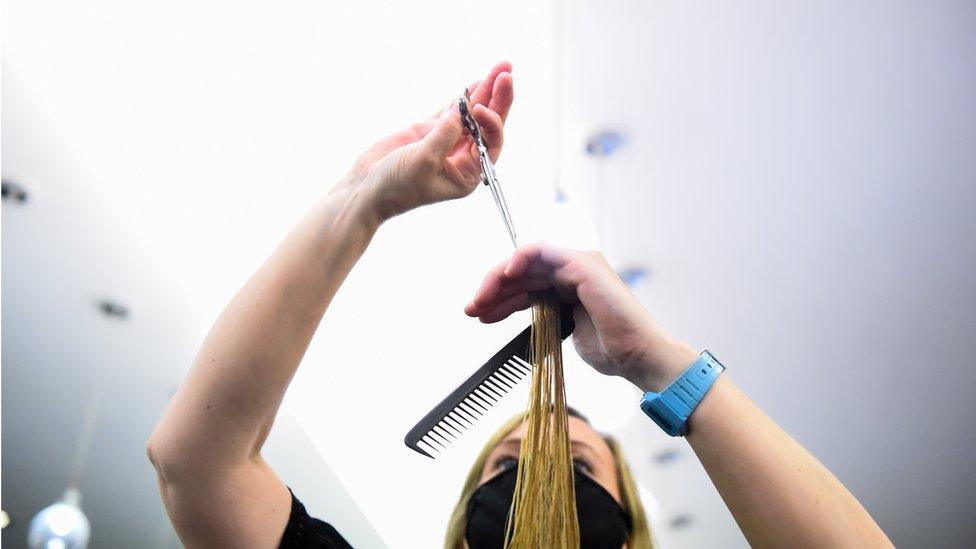
A hairdresser serves a customer at Dylan Bradshaw hair salon in Dublin
Tánaiste (Deputy Prime Minister) Leo Varadkar has hailed Monday as a "day of freedom" for the Republic of Ireland as Covid-19 restrictions were further eased.
The Republic had been at the highest level of restrictions - level five - since Christmas.
But close-contact services, such as hairdressers, are now reopening and click-and-collect retail has resumed.
People are now also able to travel across the country.
They can move outside their own county for the first time in more than four months. Sports training can also resume.
The easing in lockdown calls comes amid calls for a ramping up of the Covid-19 vaccination programme to curb a spike in infection rates in County Donegal.
Donegal currently has the highest rate of Covid-19 in the Republic of Ireland. Last week, 84 cases of Covid-19 were linked to a wake in County Donegal.
An Garda Síochána (Irish police) set up a phone line in the county to encourage locals to report anyone breaking Covid-19 restrictions. A total of 37 calls were made in the first three days.
Inquiries are continuing into 22 of those calls. In 14 cases. no breaches of regulations were established.
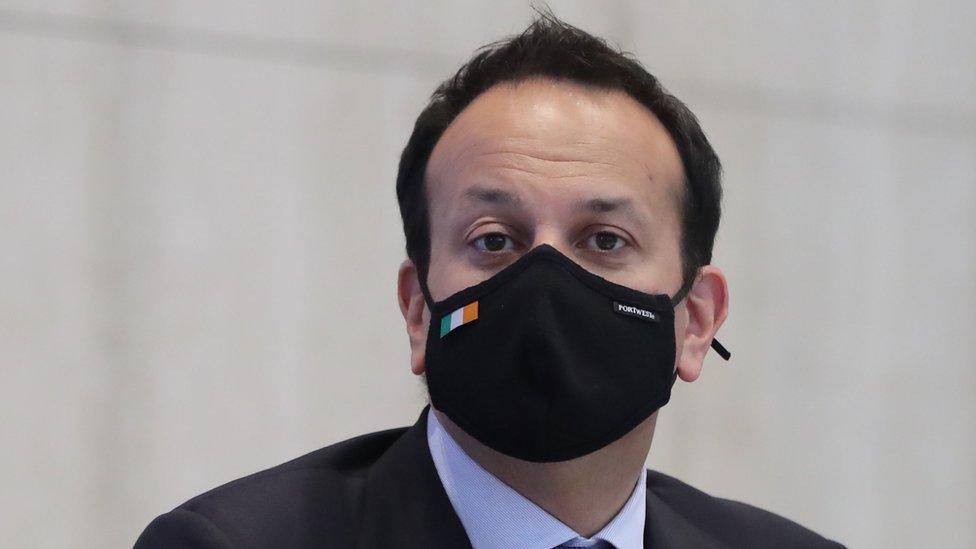
Mr Varadkar said it was a "day of freedom" for the Republic of Ireland
Meanwhile, Mr Varadkar told RTÉ's Morning Ireland programme on Monday that 12,000 businesses were due to reopen this week and 100,000 people could return to work.
He said the current financial support for businesses would be in place until the end of June.
This could not continue forever, he said, but changes would be gradual and the government would continue to support the business community to give them a chance to bounce back after a very difficult year.
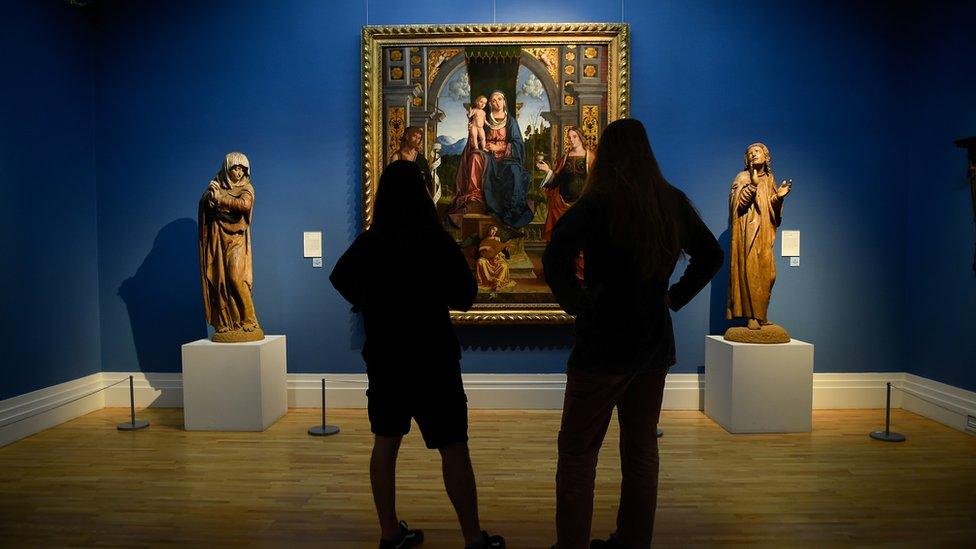
Back in the picture: the National Gallery in Dublin reopened to visitors
Testing is also being rolled out in schools and universities, he said.
The easing of restrictions in the Republic of Ireland is part of a phased relaxation of the country's strict Covid-19 lockdown announced by Taoiseach (Irish prime minister) Micheál Martin in April.
Libraries, museums, galleries and other cultural attractions are also opening.
Mr Martin said the relaxations would give people "a significant psychological uplift".
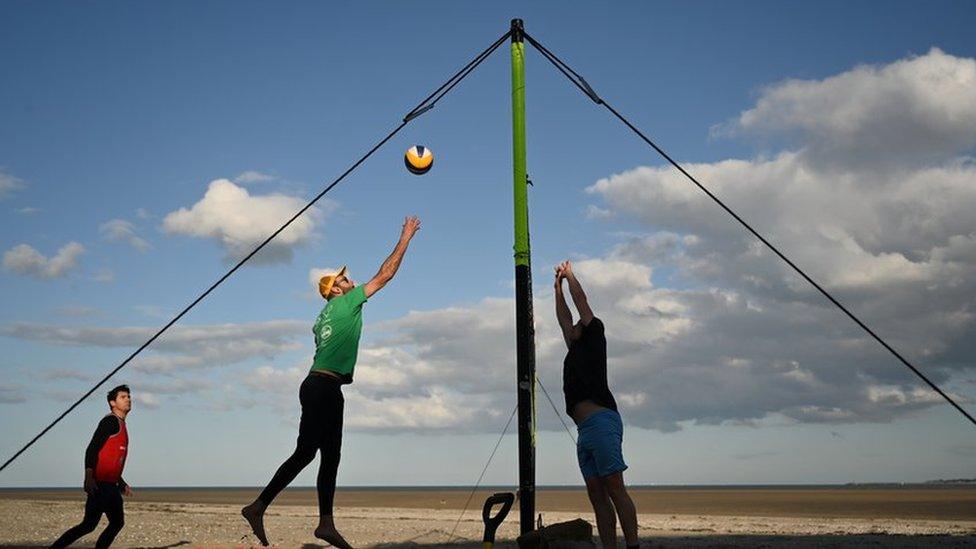
People playing volleyball on Poolbeg beach in Dublin
The measures permit people to travel for non-essential journeys outside their county and up to 50 people can attend weddings, funerals and other religious services.
Three households, or a group of six people, can meet outdoors, including in private gardens, and a vaccinated household can meet an unvaccinated one indoors.
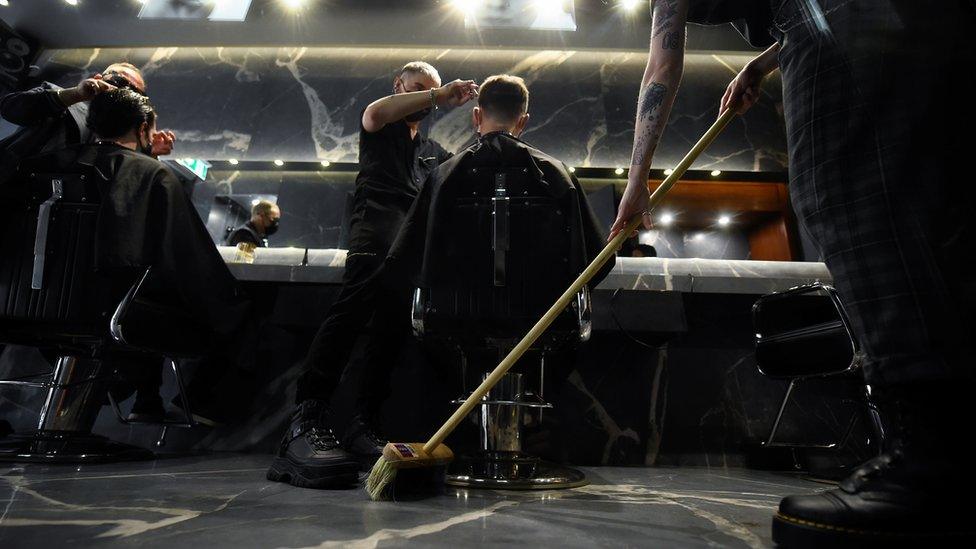
A barber serves a customer at Butcher Otoko's barbershop in Dublin
Last week, Northern Ireland Health Minister Robin Swann asked his counterpart in the Republic of Ireland, Stephen Donnelly, for a meeting to discuss the potential spread of Covid-19 from cross-border travel.
The letter stated that both governments should be doing "all we can to prevent non-essential cross-border travel", and "clear messaging" and enforcement should be used, if required.
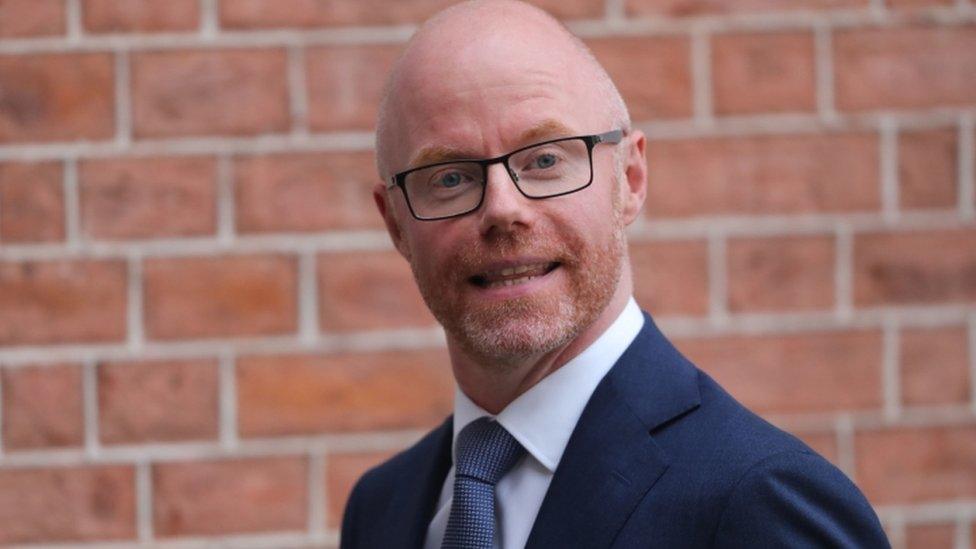
Northern Ireland Health Minister Robin Swann has asked for a meeting with Irish Health Minister Stephen Donnelly (above)
Mr Swann called for the Irish government to elicit an "appropriate and proportionate" response to recent transmission data on both sides of the border.
It followed the news that seven cases of the Indian variant of Covid-19 had been detected in Northern Ireland.
It is the first time it has been confirmed in Northern Ireland, but three cases were detected in the Republic of Ireland last month.
Mr Donnelly said he did not believe new Irish cross-border travel restrictions were "warranted", given the current Covid-19 situation, although he is expected to speak to Mr Swann about the issue later this week.
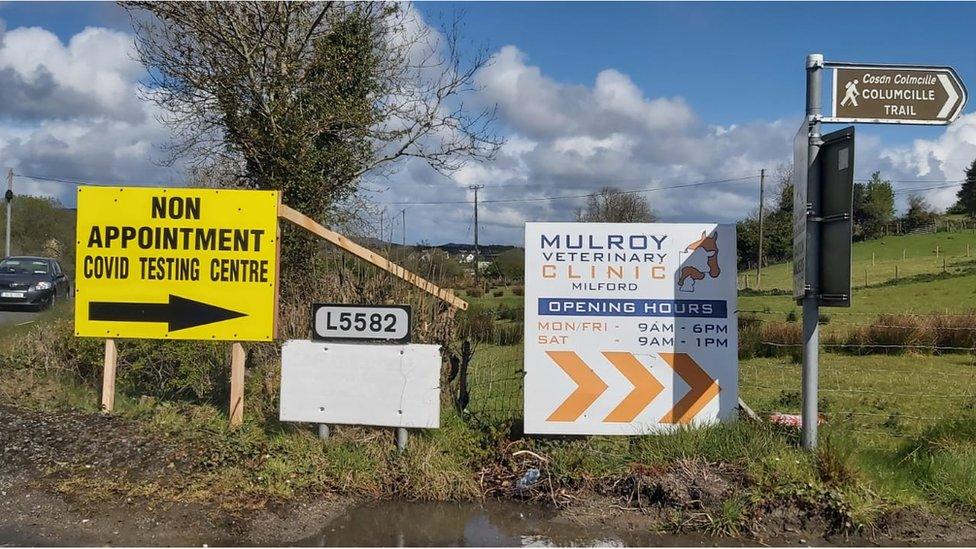
Walk-in testing centres have opened in County Donegal
What is due to open?
From 17 May, all non-essential shops in the Republic of Ireland can reopen to customers.
From 2 June, hotels, guest houses and self-catering accommodation will be permitted to trade.
All pubs, regardless of whether they serve food, along with restaurants can open for outdoor service on 7 June.
The summer relaxation is premised on containing new variants and accelerating a vaccination programme that is well behind Northern Ireland's.
- Published29 April 2021
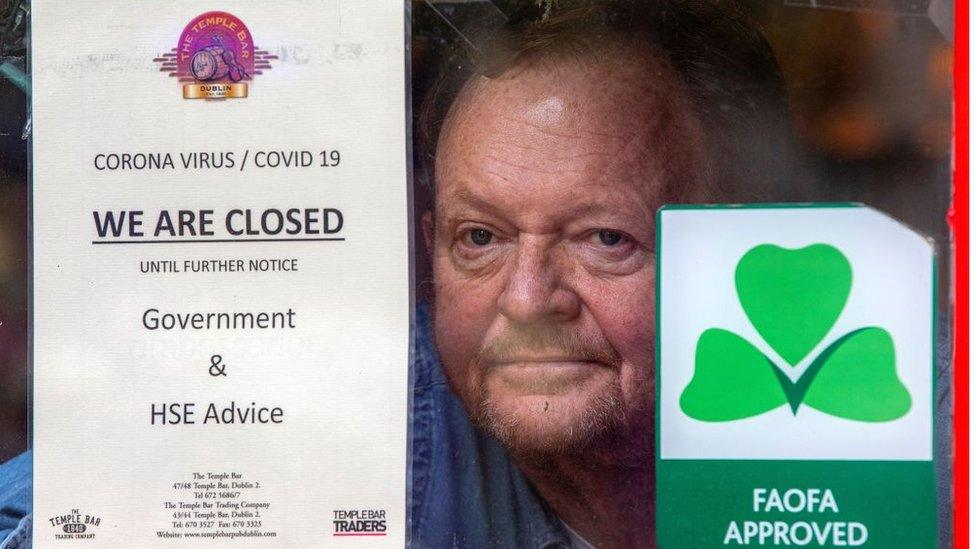
- Published6 May 2021
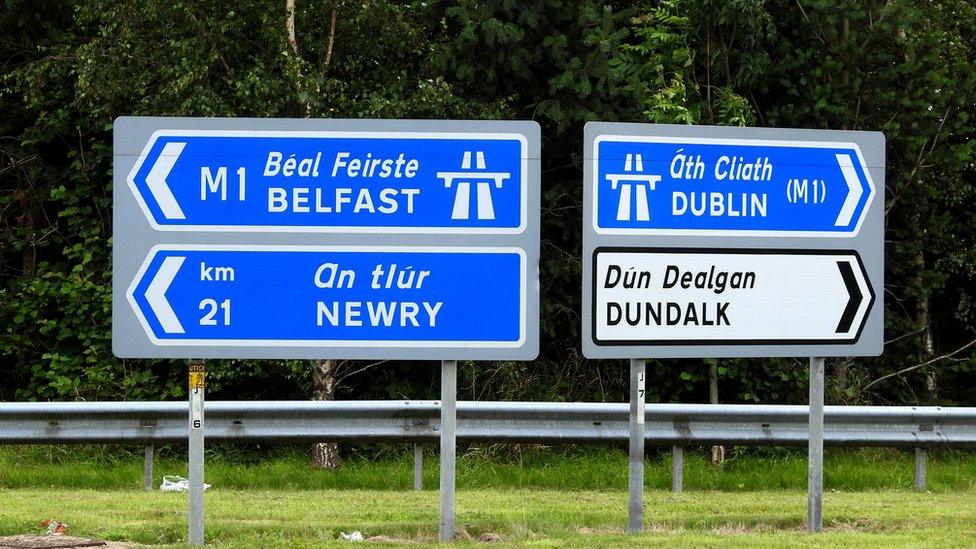
- Published5 May 2021
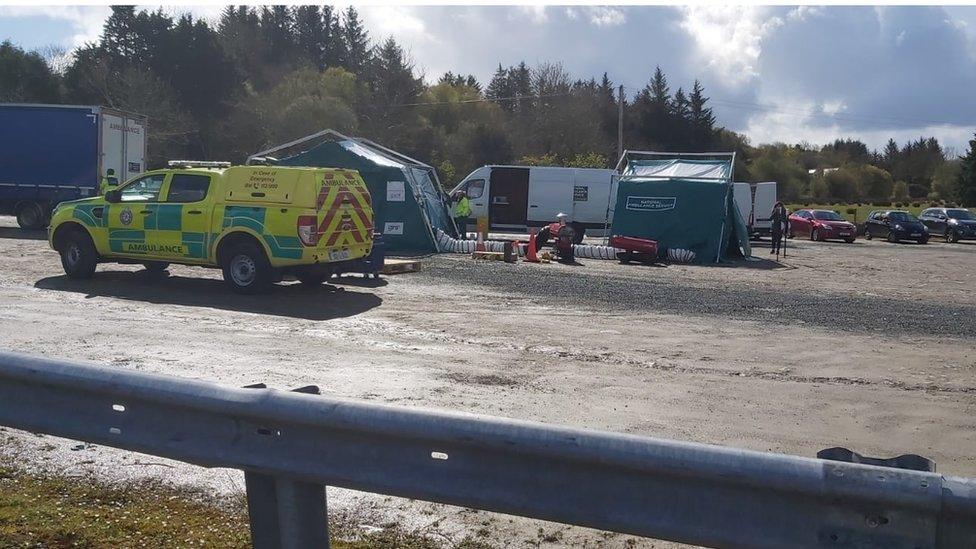
- Published26 April 2021
